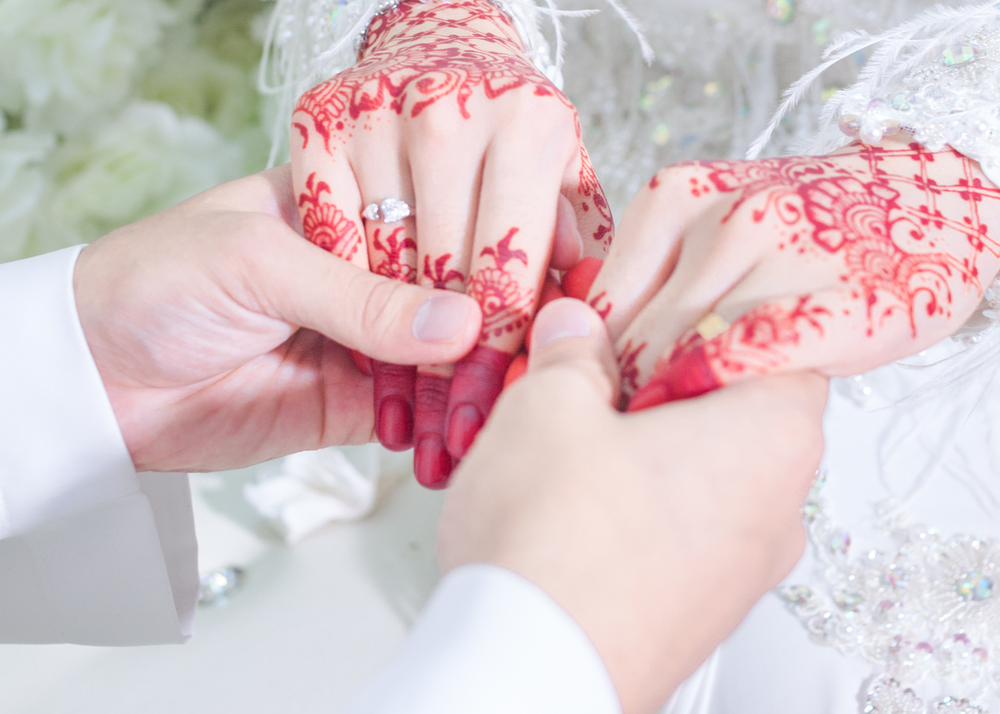Jefferies no longer specialise in Nikkah-related matters, but can offer quick and professional advice on Divorce, Separation, and wider Family Law matters.
In today’s modern 21st Century, it is seriously surprising to note that approximately 61% of Muslims do not register their marriage in the UK as they believe their Islamic marriage, commonly referred to as Nikkah will be recognised in the UK. This is simply not true as the UK Courts do not sadly, recognise the validity of a Nikkah. It is seen to be a religious ceremony and so not seen as carrying the same weight as a civil ceremony.
A Nikkah, in Islam, is a contract between a Husband and Wife and forms part of one of the stages in an Islamic marriage. The Nikkah will involve the Husband and Wife signing a contract, which will be witnessed by the Wife’s Father or another male family member and a male from the Husband’s family. By signing the contract, the Wife will indicate her permission to the marriage. To complete the ceremony both the Husband and the Wife will verbally confirm they accept one another in marriage.
As couples do not take steps to register their marriage in the UK, they find that they are without any financial security in the unfortunate event of a divorce, which often leaves Women in a vulnerable position. Under Shariah Law a Husband can divorce his Wife by saying ‘talaq’ three non-consecutive times, without addressing the division of any matrimonial assets. This differs to the way in which matrimonial assets are divided if divorce proceedings were issued within the UK Courts, which you can only do if your marriage is recognised under UK law.
Although the decision in the recent case of Akhter -v- Khan (2018) EWFC 54, has given some Muslim women ‘hope’, it is important to note that Mr Justice William in the High Court stressed that each case will be decided on its own facts to see if it falls within the Marriage Act 1949. As the case was “not about whether an Islamic marriage ceremony should be treated as creating a valid marriage in English law”.
In his judgement, Mr Justice William declared that the parties’ 18-year relationship was void, as opposed to a non-marriage. Ms Akhter was therefore entitled to a decree of nullity under the Matrimonial Causes Act 1973, as they had only had an Islamic marriage ceremony and not a civil ceremony.
The case of Akhter -v- Khan has opened the doors to a number of questions, to which no one seems to have the answer, it is however hoped that as these questions have arisen at an interesting time, this area will evolve in line with modern practices.
One way to overcome this problem, until there are further developments in the UK Legal system, is to enter into a pre-nuptial agreement. This is an agreement, which will set out how your matrimonial assets should be divided, in the unfortunate event of a divorce. Although they are not legally binding documents, more and more weight is now being placed on them since the leading case of Radmacher -v- Granatino, provided they are prepared in accordance with certain requirements. By entering into a pre-nuptial agreement you will also save yourself the unnecessary time and costs of going through the long winded Court battle of deciding ‘who gets what’, and will be your ‘get out of jail free card’, especially if you have not registered your marriage in the UK!
Jefferies no longer specialise in Nikkah-related matters.
If you have been impacted by this article and would like to seek assistance, support or advice from our specialist Divorce Solicitors, click here.
Jefferies Solicitors Essex are based in Southend and Chelmsford, assisting clients in Essex and surrounding areas with legal matters from Family Law to Property Law and much more.
Get in touch with us today: 01702 332 311
